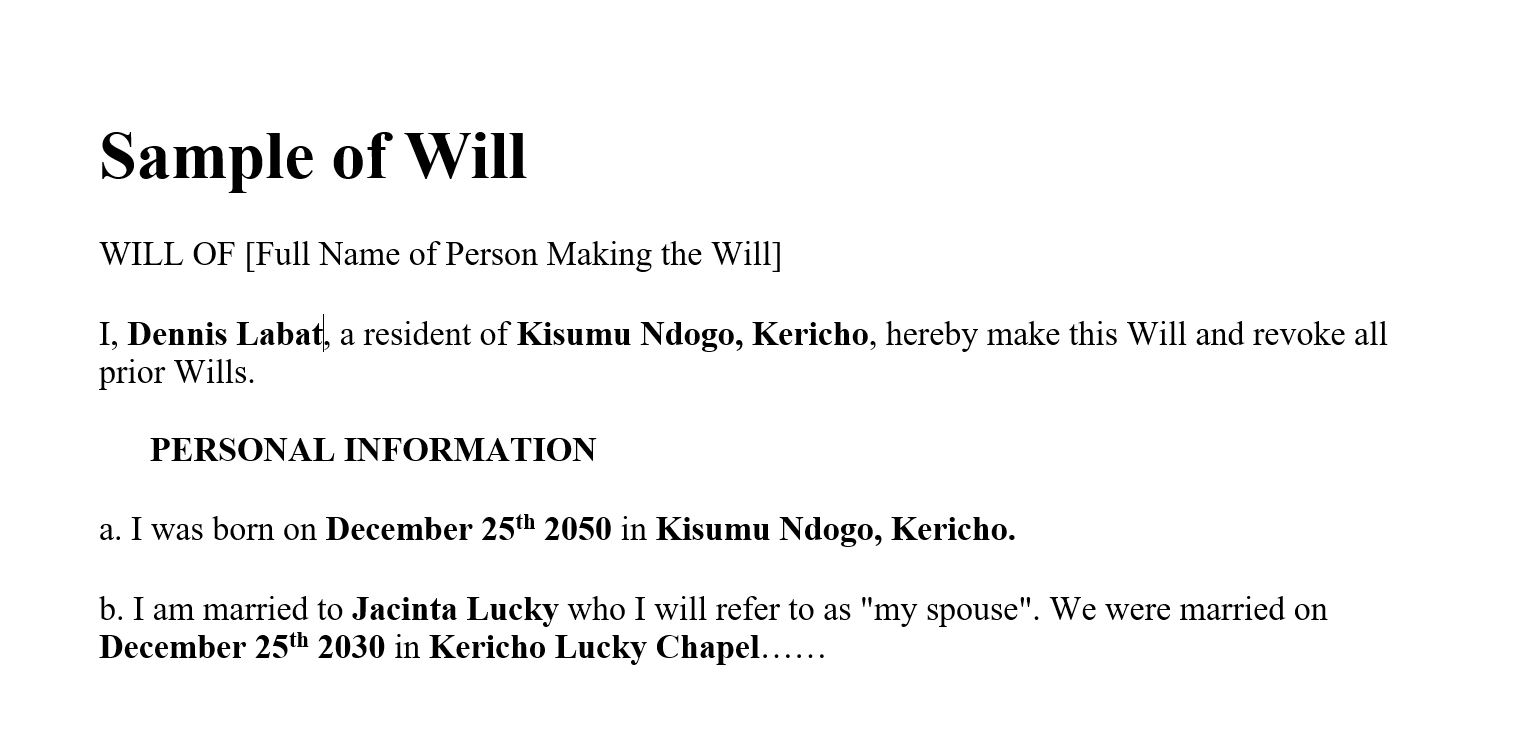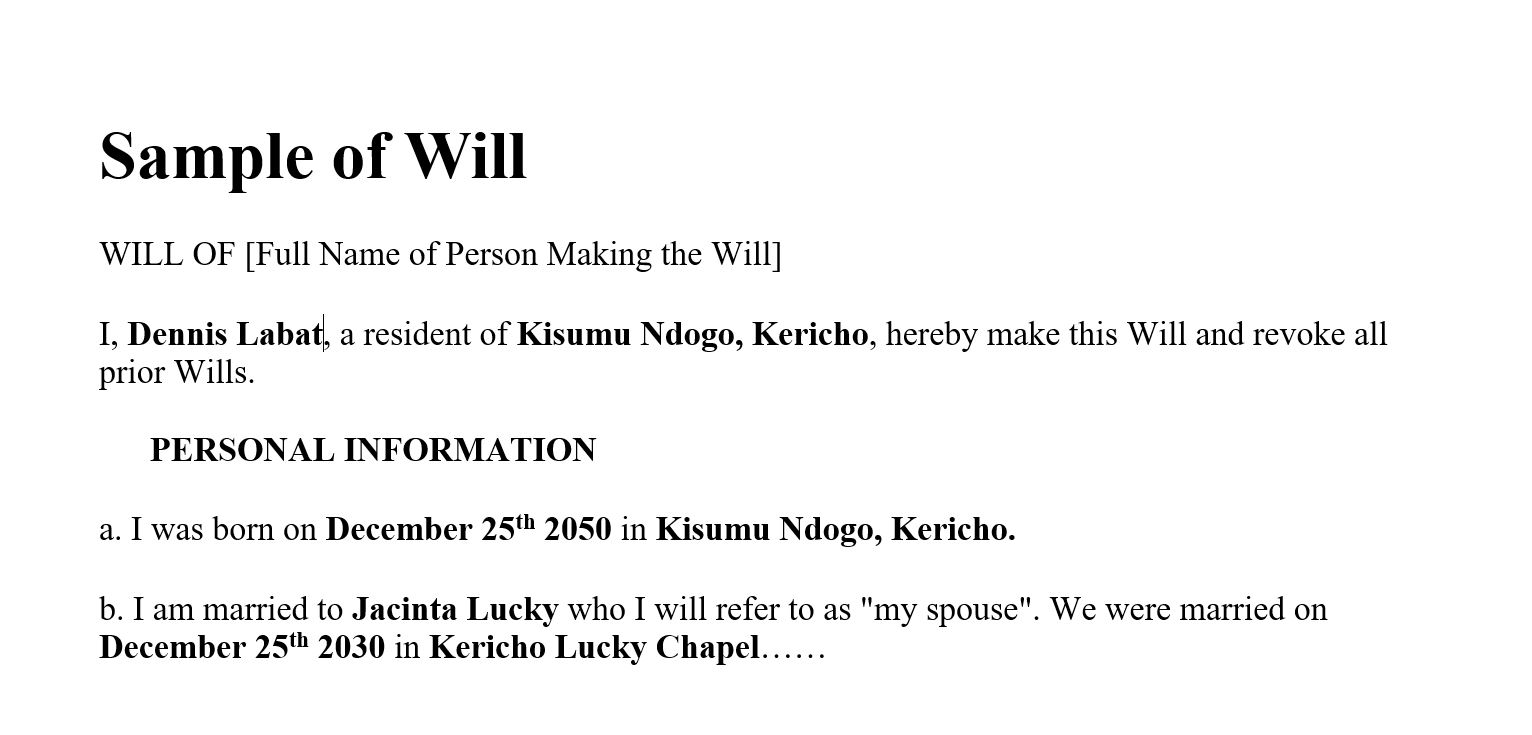Drama at morgue as family fights for body
By Jacqueline Mahugu | August 30th 2020 at 12:00:00 GMT +0300

Alex Mwandi and Johnstone Kassim Muumbo (right) at Lee Funeral protest for the release of their late father Timothy Mwandi Muumbo’s body. [David Gichuru/Standard]The row surrounding burial of former Nairobi Provincial Police Chief Timothy Muumbo whose body has been lying at a city morgue since 2015, is far from over.
Yesterday, a section of his family was stranded at Lee Funeral Home after the management declined to release Muumbo’s body for burial.
The former cop’s family has been squabbling over where to bury him with some of his children preferring he be laid at his ancestral home where his first wife was buried, while the other roots for another home where his second wife is buried.
Muumbo left an estate estimated at Sh1 billion. The body has accrued Sh4.7 million in mortuary fees.
When the children of Muumbo’s first wife, Phiatah Muumbo, went to collect the body at the funeral home, they found that one of their own, firstborn Mwinzi Muumbo, who sides with the family of the second wife, had written to the morgue objecting to the collection of the body.
“Mwinzi said he was not party to the process of removing that body from Lee and that if the morgue released the body they would fight it for contempt of court. This is because there is an order saying that if the body is to be collected or disposed, the first born should lead the rest of the family in doing that,” Tom Ngeri, a lawyer for Lee Funeral Home told the Sunday Standard.
“When the letter came to the client, we said that if that was the case, they needed to seek further clarifications because there is a very specific order on how the body is supposed to be removed.”
Colourful eulogy
When we spoke to Mwinzi yesterday, he said he did so because he was not aware that there was a funeral arranged. However, another brother, Alex Muumbo, claimed Mwinzi had been informed by elders sent to him a month ago and he declined to participate, claims Mwinzi dismissed.
At Lee, the children of the first wife were left clutching onto colourful eulogy booklets, which described their old man as “the lion of Nzatani”. A veteran policeman, Muumbo was among the first cadre of Kenyan police officers to be trained at the Scotland Yard, UK in the 1950’s.
“Today we finally say goodbye to our beloved father, grand-father and great grandfather...” the eulogy read.
When he died in 2015, a controversial postmortem concluded that he died of heart attack. Suspicion ranged and in the process, a second one was ordered. The matter took a different trajectory when Muumbo’s organs were allegedly found missing, and a separate case took off.
“Because of that, there is a case against Dr Moses Njue and his son. An employee from Lee Funeral Home has given evidence in a criminal court that it was actually Njue who cut out the parts,” Mary Muigai, the lawyer for the first wife’s family told the Sunday Standard yesterday.
Muigai said her clients were of the position that their father should be buried in his ancestral land in Nzatani, Mwingi. This is also in accordance with a 2016 court ruling which also directed that Mwinzi leads the rest in burying their father.
Soon thereafter however, suits and counter suits on the same matter ensued, with one section obtaining stay orders against the decision.
Ngeri said the court order was specific on the collection and disposal of the body, and that Mwinzi , the first born, would lead the family.
“There have been other subsequent court orders, but all of them were referring to that main court order by HCCA no. 7 of 2016. Lee was not a party. Lee was supposed to implement what the family had agreed on,” said Ngeri.
He added that Lee was not opposed to releasing the body if the outstanding bill was settled.
As a matter of fact, Lee had given them the option to pay half and take the body, with the other half to be be paid within six months.

 www.standardmedia.co.ke
www.standardmedia.co.ke
A will is a very important document that will save your family fro this kind of drama after you are gone.
maybe we should also start introducing your whole family to each other early enough to avoid surprises and bitterness later on.
A will or testament is a legal document that expresses a person's (testator) wishes as to how their property (estate) is to be distributed after their death and as to which person (executor) is to manage the property until its final distribution.
By Jacqueline Mahugu | August 30th 2020 at 12:00:00 GMT +0300

Alex Mwandi and Johnstone Kassim Muumbo (right) at Lee Funeral protest for the release of their late father Timothy Mwandi Muumbo’s body. [David Gichuru/Standard]The row surrounding burial of former Nairobi Provincial Police Chief Timothy Muumbo whose body has been lying at a city morgue since 2015, is far from over.
Yesterday, a section of his family was stranded at Lee Funeral Home after the management declined to release Muumbo’s body for burial.
The former cop’s family has been squabbling over where to bury him with some of his children preferring he be laid at his ancestral home where his first wife was buried, while the other roots for another home where his second wife is buried.
Muumbo left an estate estimated at Sh1 billion. The body has accrued Sh4.7 million in mortuary fees.
When the children of Muumbo’s first wife, Phiatah Muumbo, went to collect the body at the funeral home, they found that one of their own, firstborn Mwinzi Muumbo, who sides with the family of the second wife, had written to the morgue objecting to the collection of the body.
“Mwinzi said he was not party to the process of removing that body from Lee and that if the morgue released the body they would fight it for contempt of court. This is because there is an order saying that if the body is to be collected or disposed, the first born should lead the rest of the family in doing that,” Tom Ngeri, a lawyer for Lee Funeral Home told the Sunday Standard.
“When the letter came to the client, we said that if that was the case, they needed to seek further clarifications because there is a very specific order on how the body is supposed to be removed.”
Colourful eulogy
When we spoke to Mwinzi yesterday, he said he did so because he was not aware that there was a funeral arranged. However, another brother, Alex Muumbo, claimed Mwinzi had been informed by elders sent to him a month ago and he declined to participate, claims Mwinzi dismissed.
At Lee, the children of the first wife were left clutching onto colourful eulogy booklets, which described their old man as “the lion of Nzatani”. A veteran policeman, Muumbo was among the first cadre of Kenyan police officers to be trained at the Scotland Yard, UK in the 1950’s.
“Today we finally say goodbye to our beloved father, grand-father and great grandfather...” the eulogy read.
When he died in 2015, a controversial postmortem concluded that he died of heart attack. Suspicion ranged and in the process, a second one was ordered. The matter took a different trajectory when Muumbo’s organs were allegedly found missing, and a separate case took off.
“Because of that, there is a case against Dr Moses Njue and his son. An employee from Lee Funeral Home has given evidence in a criminal court that it was actually Njue who cut out the parts,” Mary Muigai, the lawyer for the first wife’s family told the Sunday Standard yesterday.
Muigai said her clients were of the position that their father should be buried in his ancestral land in Nzatani, Mwingi. This is also in accordance with a 2016 court ruling which also directed that Mwinzi leads the rest in burying their father.
Soon thereafter however, suits and counter suits on the same matter ensued, with one section obtaining stay orders against the decision.
Ngeri said the court order was specific on the collection and disposal of the body, and that Mwinzi , the first born, would lead the family.
“There have been other subsequent court orders, but all of them were referring to that main court order by HCCA no. 7 of 2016. Lee was not a party. Lee was supposed to implement what the family had agreed on,” said Ngeri.
He added that Lee was not opposed to releasing the body if the outstanding bill was settled.
As a matter of fact, Lee had given them the option to pay half and take the body, with the other half to be be paid within six months.

Drama at morgue as family fights for body
A will is a very important document that will save your family fro this kind of drama after you are gone.
maybe we should also start introducing your whole family to each other early enough to avoid surprises and bitterness later on.
A will or testament is a legal document that expresses a person's (testator) wishes as to how their property (estate) is to be distributed after their death and as to which person (executor) is to manage the property until its final distribution.


